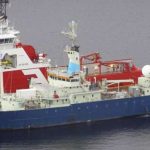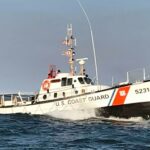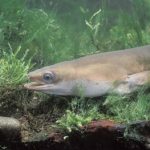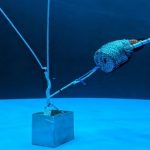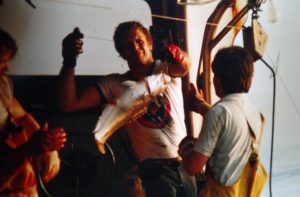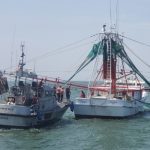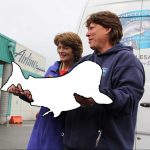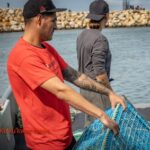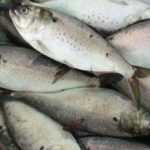Tag Archives: University of New England
UNE launches novel research initiative to decode DNA of rare, multicolored lobsters
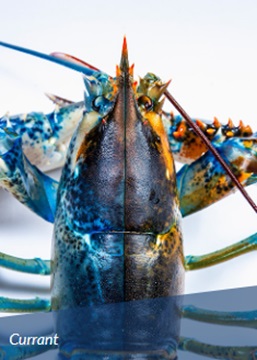 With the donation of two, new rare-colored lobsters, the University of New England has launched an ambitious research project to decode the genetic basis for to decode the genetic basis. A lobster typically appears brown or “mottled” in appearance, though in rare cases they can come in various colors, including blue, yellow, orange, red, and even white or albino. Researchers say the precise genetic mechanisms responsible for these extraordinary variations remain largely unknown. UNE’s Markus Frederich, Ph.D., professor of marine sciences, is hoping to change that. Photos, more, >>click to read<< 13:15
With the donation of two, new rare-colored lobsters, the University of New England has launched an ambitious research project to decode the genetic basis for to decode the genetic basis. A lobster typically appears brown or “mottled” in appearance, though in rare cases they can come in various colors, including blue, yellow, orange, red, and even white or albino. Researchers say the precise genetic mechanisms responsible for these extraordinary variations remain largely unknown. UNE’s Markus Frederich, Ph.D., professor of marine sciences, is hoping to change that. Photos, more, >>click to read<< 13:15
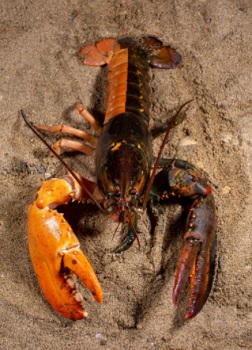
UNE’s Marine Science Center is home to another rare lobster.
The split-colored lobster came to UNE late last week thanks to a donation by Eric Payne from Inland Seafood Corporation, one of the leading packers of Maine lobster. The half-orange, half-brown crustacean is considered to be a one-in-50 million catch. “We are honored that local lobstermen entrust these rare animals to UNE’s Marine Science Center where we will use them in our teaching and outreach activities,” >click to read< 18:45
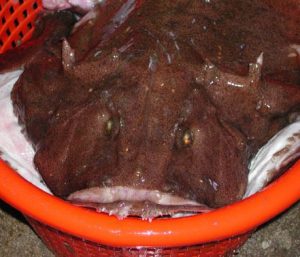
2018-2019 Monkfish Research Set-Aside (RSA) Program
Three new cooperative research projects announced today will improve understanding of monkfish biology and how to reduce catch of skates in monkfish gillnet gear. The projects are possible because of an innovative program established by the New England and Mid-Atlantic Fishery Management Councils, and managed by NOAA Fisheries in the region. Under it, monkfish fishing days are set-aside each year and revenue generated from the sale of those days are used to pay for research projects. Award recipients for the 2018-2019 Monkfish Research Set-Aside (RSA) Program include the Coonamessett Farm Foundation, Cornell Cooperative Extension of Suffolk County, and the University of New England. >click to read<10:08
Bycatch Reduction Engineering Program – 2017 Awards
 NOAA Fisheries has awarded more than $2.3 million to partners around the country to support innovative bycatch reduction research projects through its . Bycatch of various species–fish, marine mammals, or turtles–can have significant biological, economic, and social impacts. Preventing and reducing bycatch is a shared goal of fisheries managers, the fishing industry, and the environmental community. click here to read the notice 14:10
NOAA Fisheries has awarded more than $2.3 million to partners around the country to support innovative bycatch reduction research projects through its . Bycatch of various species–fish, marine mammals, or turtles–can have significant biological, economic, and social impacts. Preventing and reducing bycatch is a shared goal of fisheries managers, the fishing industry, and the environmental community. click here to read the notice 14:10
UNE professor receives $493,000 in NOAA grants to study fisheries
 A University of New England marine sciences professor was recently awarded two federal grants totaling more than $493,000 to fund studies aimed at improving the commercial fishing industry and the environment. The two grants from the National Oceanic and Atmospheric Administration will research ways to reduce the deaths of Atlantic cod accidentally caught in lobster traps in the Gulf of Maine and Dusky sharks unintentionally caught during commercial pelagic longline fishing. Read the rest here 18:19
A University of New England marine sciences professor was recently awarded two federal grants totaling more than $493,000 to fund studies aimed at improving the commercial fishing industry and the environment. The two grants from the National Oceanic and Atmospheric Administration will research ways to reduce the deaths of Atlantic cod accidentally caught in lobster traps in the Gulf of Maine and Dusky sharks unintentionally caught during commercial pelagic longline fishing. Read the rest here 18:19
UNE researcher gets $1.7M grant to aid fishing industry – will research the mortality rate of winter skates
 A federal agency has awarded a University of New England researcher and his colleagues $1.7 million for a research project they hope will help increase revenues for the fishing industry. “If our proposed study is as successful as our previous otter trawl project, it could result in increased revenues to the commercial fishing industry,” Read more here 16:05
A federal agency has awarded a University of New England researcher and his colleagues $1.7 million for a research project they hope will help increase revenues for the fishing industry. “If our proposed study is as successful as our previous otter trawl project, it could result in increased revenues to the commercial fishing industry,” Read more here 16:05
UNE seal rescue facility closes, says animals no longer endangered – (They never were!)
 It was heading into the traditionally busy Memorial Day weekend that Lynda Doughty, executive director of Marine Mammals of Maine, said she received a press release that the MARC facility was closing. The news, she said, was “devastating.” (I just don’t feel devastated) Read more here 08:40
It was heading into the traditionally busy Memorial Day weekend that Lynda Doughty, executive director of Marine Mammals of Maine, said she received a press release that the MARC facility was closing. The news, she said, was “devastating.” (I just don’t feel devastated) Read more here 08:40
University of New England researcher nets 7-foot, 250-pound Atlantic sturgeon in Saco River, says it’s a sign of the prehistoric fish’s comeback
![]() BIDDEFORD, Maine — University of New England associate professor James Sulikowski has a big fish story. On Wednesday, his team of marine science researchers caught what they estimate to be a 7-foot-long, 250-pound Atlantic sturgeon on the Saco River, potentially the largest ever recorded in the southern Maine waterway. Photos – continued
BIDDEFORD, Maine — University of New England associate professor James Sulikowski has a big fish story. On Wednesday, his team of marine science researchers caught what they estimate to be a 7-foot-long, 250-pound Atlantic sturgeon on the Saco River, potentially the largest ever recorded in the southern Maine waterway. Photos – continued

































